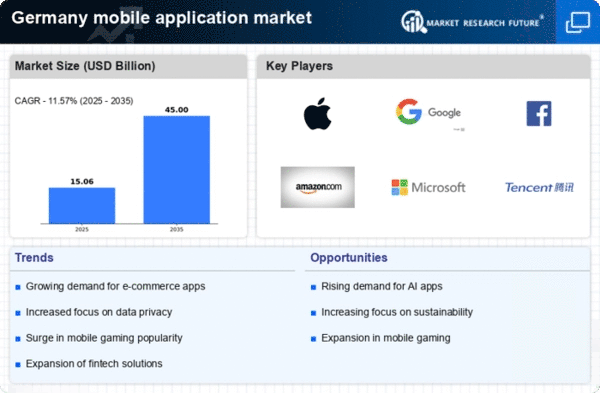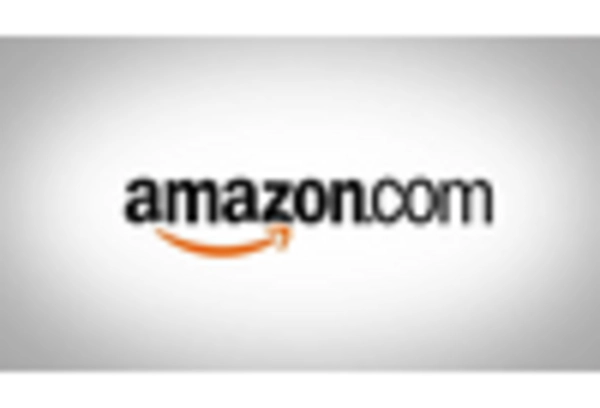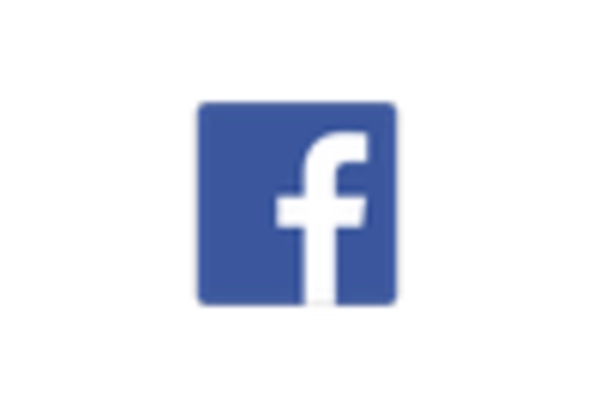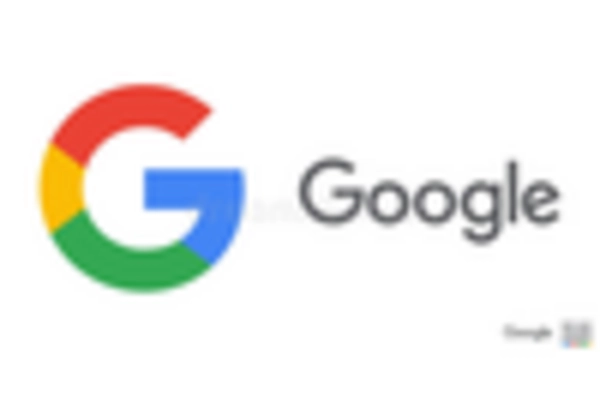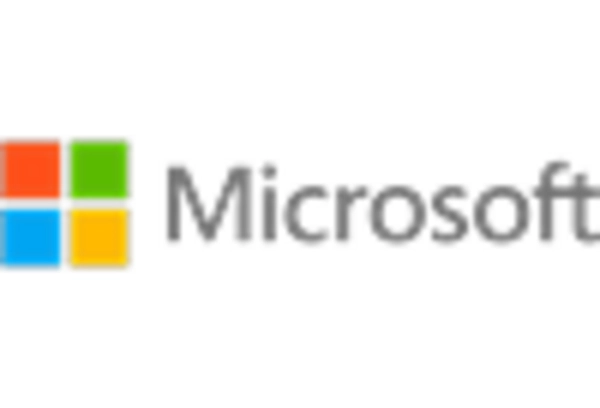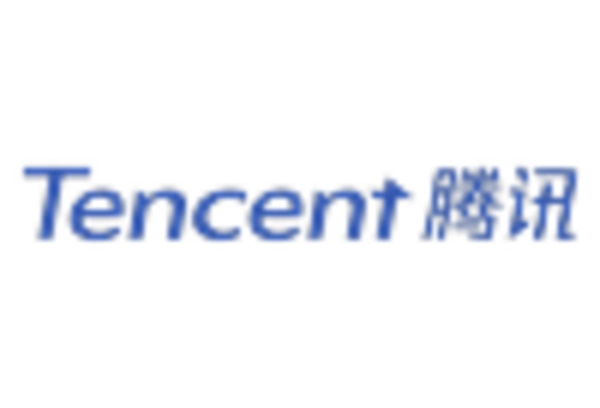Surge in Mobile Internet Penetration
The mobile application market in Germany experiences a notable surge in mobile internet penetration, which is a critical driver for growth. As of November 2025, approximately 95% of the population has access to mobile internet, facilitating the widespread use of applications across various sectors. This high connectivity enables users to engage with mobile applications seamlessly, enhancing user experience and driving demand. Furthermore, the increasing availability of affordable data plans contributes to this trend, allowing more individuals to access mobile applications. The mobile application market is likely to benefit from this trend, as developers create more innovative and user-friendly applications tailored to the needs of a connected population.
Growing Demand for E-commerce Solutions
The mobile application market in Germany is significantly influenced by the growing demand for e-commerce solutions. With online shopping becoming a preferred method for consumers, mobile applications that facilitate e-commerce transactions are witnessing substantial growth. In 2025, e-commerce sales in Germany are projected to reach €100 billion, with a considerable portion of these transactions occurring via mobile applications. This trend indicates a shift in consumer behavior, where convenience and accessibility drive the adoption of mobile shopping apps. Consequently, the mobile application market is likely to see an influx of new applications designed to enhance the shopping experience, including features such as augmented reality and personalized recommendations.
Emergence of Artificial Intelligence in Apps
The integration of artificial intelligence (AI) into mobile applications is emerging as a pivotal driver for the mobile application market in Germany. As of November 2025, a growing number of applications leverage AI technologies to enhance user experience and functionality. This includes personalized recommendations, chatbots for customer service, and advanced data analytics. The mobile application market is likely to see a surge in AI-driven applications, as businesses aim to differentiate themselves in a competitive landscape. The potential for AI to improve user engagement and satisfaction suggests that this trend will continue to shape the future of mobile applications in Germany.
Rising Popularity of Health and Fitness Apps
The mobile application market in Germany is experiencing a rising popularity of health and fitness applications, driven by a growing awareness of health and wellness among consumers. As of November 2025, approximately 30% of the population actively uses health-related mobile applications, indicating a strong market segment. This trend is likely to continue as individuals seek to monitor their health, track fitness goals, and access personalized wellness programs. The mobile application market is expected to see an increase in the development of innovative health apps, including features such as telemedicine and virtual coaching, catering to the evolving needs of health-conscious consumers.
Increased Investment in Mobile App Development
Investment in mobile app development is a significant driver for the mobile application market in Germany. As businesses recognize the importance of mobile presence, funding for app development has surged. In 2025, the total investment in mobile app development is estimated to exceed €5 billion, reflecting a robust commitment from both startups and established companies. This influx of capital enables developers to innovate and create high-quality applications that cater to diverse consumer needs. The mobile application market is poised to benefit from this trend, as increased competition fosters creativity and leads to the emergence of cutting-edge applications that enhance user engagement.


